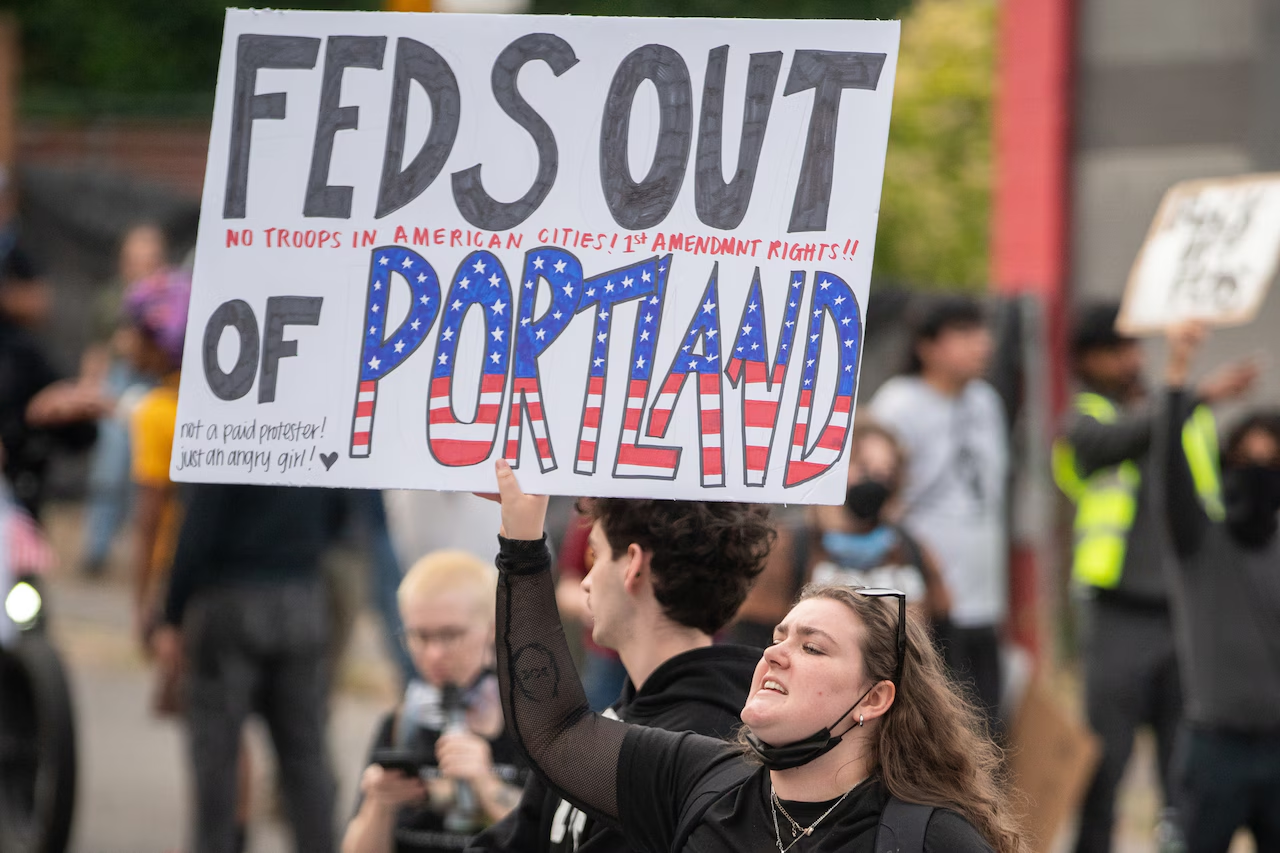A federal judge is expected to issue a decision Saturday on whether to grant Oregon’s request for a temporary restraining order blocking President Donald Trump’s plan to mobilize 200 Oregon National Guard troops to Portland.
After nearly two hours of arguments on Friday, U.S. District Judge Karin J. Immergut told the courtroom that she would take the matter “under careful consideration” but recognized the urgency of the case. “I understand this issue is of great importance to many people,” she said.
The state of Oregon and the city of Portland jointly filed suit earlier this week, arguing that Trump’s decision to federalize the state’s Guard forces to assist at a federal Immigration and Customs Enforcement (ICE) facility violates constitutional protections and long-standing limits on presidential power.
Also Read
If approved, the temporary restraining order would immediately halt the planned deployment, which Trump and Defense Secretary Pete Hegseth announced last weekend. The order would remain in place while the broader lawsuit — naming Trump, Hegseth, Homeland Security Secretary Kristi Noem, and their respective agencies — proceeds through federal court.
State Argues Federal Overreach
Oregon’s legal team, led by Attorney General Dan Rayfield, contends that Trump’s decision violates the Tenth Amendment, which reserves police powers to the states, and the Posse Comitatus Act, which restricts the use of military forces in domestic law enforcement.
“This is one of the most dramatic infringements on state sovereignty in Oregon’s history,” said Senior Assistant Attorney General Scott Kennedy during the hearing. He argued that sending troops to Portland would not only undermine state authority but could also inflame tensions and trigger larger protests.
The state also noted that the 200 Guard members selected for the deployment make up a large portion of Oregon’s emergency response force — personnel needed for wildfire, disaster, and rescue operations.
Federal Government Defends Action
Representing the Trump administration, Justice Department attorney Eric Hamilton defended the move as a necessary response to what he described as “ongoing threats” to federal agents working at the ICE facility in south Portland. He cited Title 10 of the U.S. Code, which allows the president to federalize National Guard units in the event of rebellion or obstruction of federal law.
Hamilton acknowledged, however, that the protests at the site have been relatively small in recent months, with no large-scale violence reported. Portland police have described the demonstrations as largely peaceful, aside from a few minor altercations.
Judge Questions the Basis for Deployment
Judge Immergut pressed government lawyers on the justification for calling in troops, noting that much of the administration’s reasoning relied on Trump’s social media posts and a June memo referencing a separate deployment to California earlier this year.
“Are you saying I should consider a TruthSocial post as a formal presidential determination?” she asked pointedly.
Decision Pending
As of Friday evening, Immergut had not issued a ruling. Both Governor Tina Kotek and Attorney General Rayfield urged Oregonians to remain calm while the court deliberates.
“I’m proud of the arguments we’ve presented,” Kotek said. “Now we wait for the court’s decision — and I ask all Oregonians to continue expressing themselves peacefully.”
The ruling, expected Saturday, will determine whether federal troops can be deployed in Oregon or whether the state’s challenge will move forward with a temporary block in place.












